News
Insecurity: We Can’t Run Away From Community Policing, Fayemi Admits
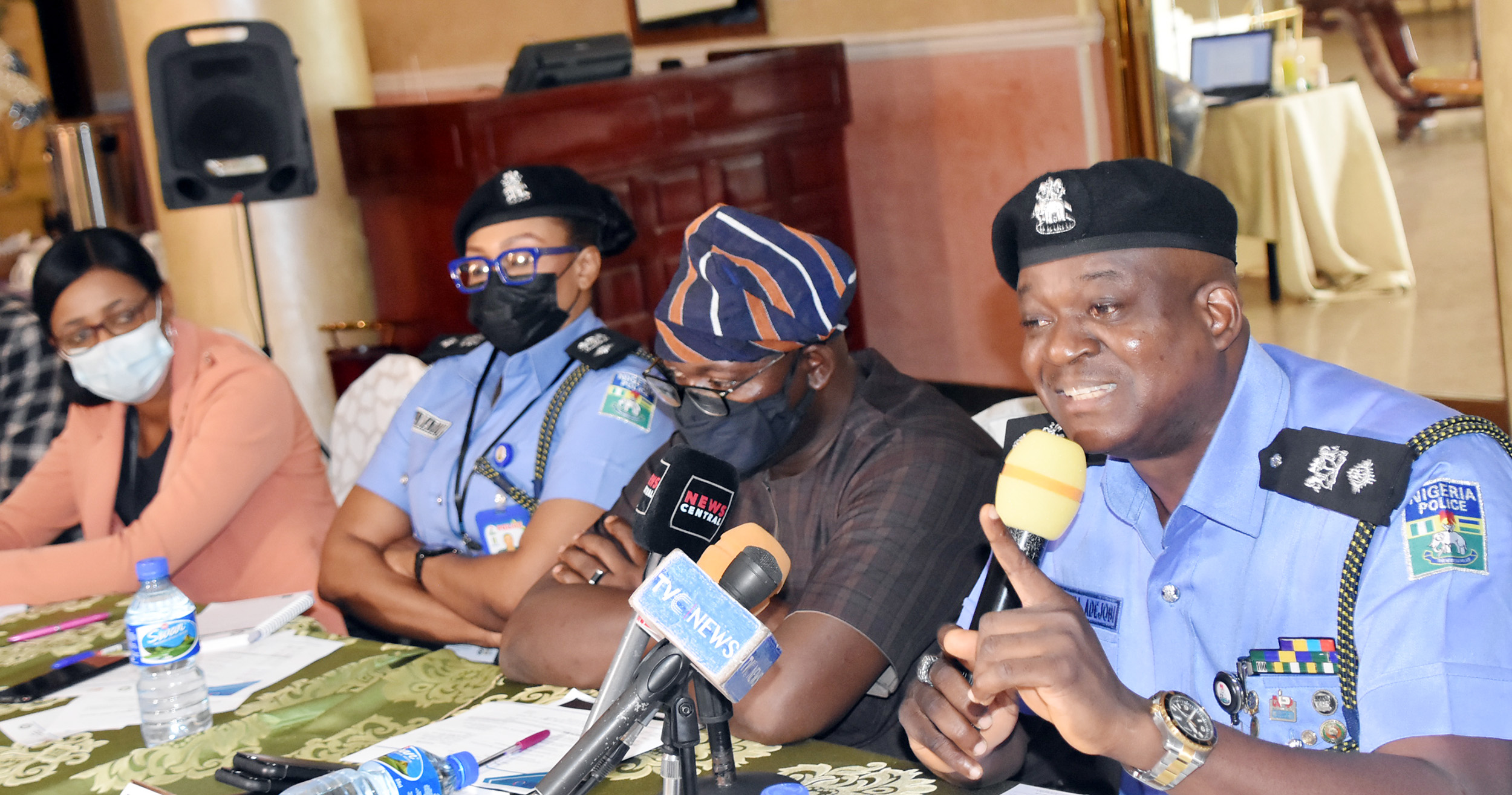
The Chairman of Nigerian Governors’ Forum (NGF) and Governor of Ekiti State, Dr Kayode Fayemi, has said community policing was the way to go but collaboration with the mainstream security agencies was needed to achieve results like western nations.
According to him, vigilante associations like Amotekun were achieving results with local intelligence with proofs to show in his state, Ekiti, adding that it is important to underscore a holistic approach to insecurity, because sitting at the centre of it, was bad government.
Fayemi said this, yesterday, during a panel discussion on overview of security situation across the states at the opening of a two-day multi-stakeholders meeting on the peace and inclusive security initiative organised by the NGF in partnership with the Centre for Democracy and Development (CDD).
He said: “We believe until and unless we begin to look at multi-level policing. That is what is happening in every nation around the world, we will not meet the demands of our people for local security and global protection. And ultimately, until we ensure that we address not just the conflicts and crime, but the causes of these conflicts. And we know some of them, out of school children, poverty in our communities, desperation, amongst the young people in the communities and generally good governance, improving the quality of governance. We may not be totally able to avoid what we are going through. Even when you have all that you will still have crime. But if you don’t have it at all, then it becomes even more problematic for you.”
Fayemi, who disagreed with the argument of a participant that state police would be prone to abuse, said abuses meted on some Nigerians by some security personnel is a proof that both federal or state police would still be prone to abuse.
According to him, as a sitting governor in 2014, he was abused by the police despite his immunity.
He said rather than condemn community policing, an institutional framework should be put in place to guard against abuse.
Fayemi explained “on local authorities who may not subscribe to institutionality rules. This is a perennial excuse that we get. I’m not going to sit here and make an excuse that such powers in the hands of some local actors may not be abused.
“Federal police that we all know abuse the rights of citizens, including the rights of governors, even with immunity, you may not know that. I was abused by federal police in 2014 during my election and I had immunity. Anybody could abuse.
“It could happen, even if you devolve security to the local level. However, what we need to be talking about is, what institutional frameworks should we put in place to ensure that such powers are not abused, not to use it as an excuse not to do the right thing.
“Because at the end of the day, there are mechanisms in our constitution to protect citizens’ rights.”
Fayemi noted that the police, despite having statutory body, the National Police Council recognised by the Constitution, unlike the National Judicial Council, was not effective in meting out punishments etc.
According to him, the National Police Council presided over by the president as chairman, and 36 governors as members, among others,was more or less a rubber stamp in doing the bidding of the executive.
Fayemi said: “Unfortunately, unlike the National Judicial Council, that is very effective in meting out punishments, sanctions, promotions, appointments for judicial officers across the length and breadth of the country.
“The National Police Council has only succeeded since the 1999 Constitution to ratify the appointment of Inspector General of Police. We are only summoned to National Police Council.
“And this is a constitutional body; by the way, check your Constitution you will find it there. It only meets when a new or acting Inspector General of Police is to be confirmed and ratified.
“That meeting is summoned and it meets for 10 or 30minutes. And then we look at the CV of the acting IG, and we approve. You’re not likely to disapprove anyway; the president has already appointed him. But that body has no powers beyond that,” he added.
The Ekiti governor further explained that in most countries where you have multi-level policing, there was a regulatory authority that was responsible for punishment and sanctioning those who go beyond their responsibilities.
“And I think that’s what we should be talking about. Rather than talking about the possibility of abuse, there would always be the possibility of abuse.
“We can’t run away from that. But do we have effective policing now that is federal? And there is no suggestion and that is why I didn’t use the term my brother (a participant) accused me of using, I said multi-level policing. I didn’t say state police, which means local police, state police, federal police, because arguing for multi-level policing does not suggest that we want federal police to go because there are federal crimes.
“There are also crimes that are within the borders of our states in accordance with the statute that’s been promulgated or enacted by our local state assemblies.
“And there are also crimes that are local because they are local jurisdictions by local governments. If you have not paid tenement rate, the local police should deal with you. It shouldn’t be state police, because the tenement rate is the responsibility of the local authority. Not the responsibility of the state. So, that’s my take on that,” he started.
On what states use security votes for, he said “Some states have something called security votes. It is not all states. Security votes have a history. And I will urge you to look for a book by Chief Jerome Ugoji. Serving three masters, that’s what the book is called. And you will find in that book: The origins of security votes in Nigeria.
“You say what do we do with it? Without mincing words, I can’t speak for others. But I also get feedback from other states in my capacity as chairman of the governor’s forum. There are hardly any of these institutions that you are talking about that we don’t fund. We found the police. We found the police more than the federal government, quote me.”
He added “we buy them vehicles. We pay them allowances. In some cases, we even buy ammunition, of course under the authority. And if we are to engage our military in aid to civil authority, which you will find, actually in 36 states in this country today, the military is involved in internal security operations, which is a problem because, for me, its role inflation.
“Now, when you inflate the role of the security institution beyond its primary responsibility, you also have consequences that will come with that that may not be palatable. But that’s where we are because most Nigerians don’t trust the police.
“They will still come and beg governor, governor, please, can you ask the brigade commander to put a roadblock in my area. And these are ordinary citizens insisting that we should put… and you can’t put military roadblocks everywhere. It’s not possible how many do we even have.”
Hinting on the cost of military operations in most states, he said, “But if you engage the military, in civil authority in your state, is only responsible of you to pay for the rations of the men that are engaged in that activity and not expect to have the military also share that burden because that’s not their primary responsibility.
“You’ve taken them out of their primary responsibility; you have to pay for it. So, we pay for that, we pay for civil defense, there is no security institution that you have that states are not responsible for more than the federal government that has primary responsibility for them.”
On why the governors were reluctant to allow local government autonomy to ensure that they play a role in security, he said, “You know, I just talked about multi-level policing. I have no objection to local authority playing a role in local security.
“But the debate about local government autonomy is a different debate. You don’t want us to get into it here because I have my views.
“We have a position in the governors’ forum on it. And it does not suggest that local government autonomy is precisely the way people put it. The principle of federalism is very clear about federating unit.
“Local government, as a federating unit is a unique innovation in Nigeria, I don’t see it in any research work, in any book on federalism. Local government autonomy is the business of the state because the state is the federating unit.
“And most federating countries that you have today have dual federating system. You have the federal and you have the state.
“So, those who are clamouring for local government autonomy is a populist demand, is very exciting to talk about it.
“But I don’t think ultimately it serves the purpose that they want it to serve because we have capacity challenges at that level just as we have at the state level. But the result is what you matter.
“And the result is that you can have Security Council in the local authority. We have in my state, the local government has Security Council almost every month, and they get involved in our security operations. So, it is what they do, it is not the name they are called, that should matter.”
The Deputy Governor of Plateau State, Prof. SonniTyoden, who represented the governor, added that “the existence of vigilantes is an aspect of multi policing. But we have not been able to get the best out of the situation, because the vigilantes have not been really treated as part of the security structure we operate. And I think that’s what we need to do. The existence of these vigilante groups, are manifestations of the disenchantment with the existing security apparatus. And I think if we modelled the vigilantes properly, incorporate them into the security structure, I think we will get something better out of it.”
Political counsellor, British High Commission, Jonathan Bacon, said addressing these security issues was essential for achieving the Sustainable Development Goals (SDGs) and for achieving economic growth and development.
The Director General, CDD, Dr Jubril Ibrahim, noted that the country has not had it so bad in terms of insecurity.
He said: “Our country is at its most terrible level, currently. We have never had it so bad; lots of efforts, lots of ideas are being placed on the table. At our level at the CDD, we are engaged in research to discover what are the real dynamics of this insecurity at the level of the grassroots? What are the actors doing? What are the actors saying? And how are other Nigerians interpreting what is being said and what is being done? It’s because of that we feel partnership with the governor’s forum is extremely important in trying to forge a policy path that will lead us towards confronting in a more adequate manner, these insecurities we are facing.”
News
May Day: Labour Seeks Inclusiveness In Policy-making
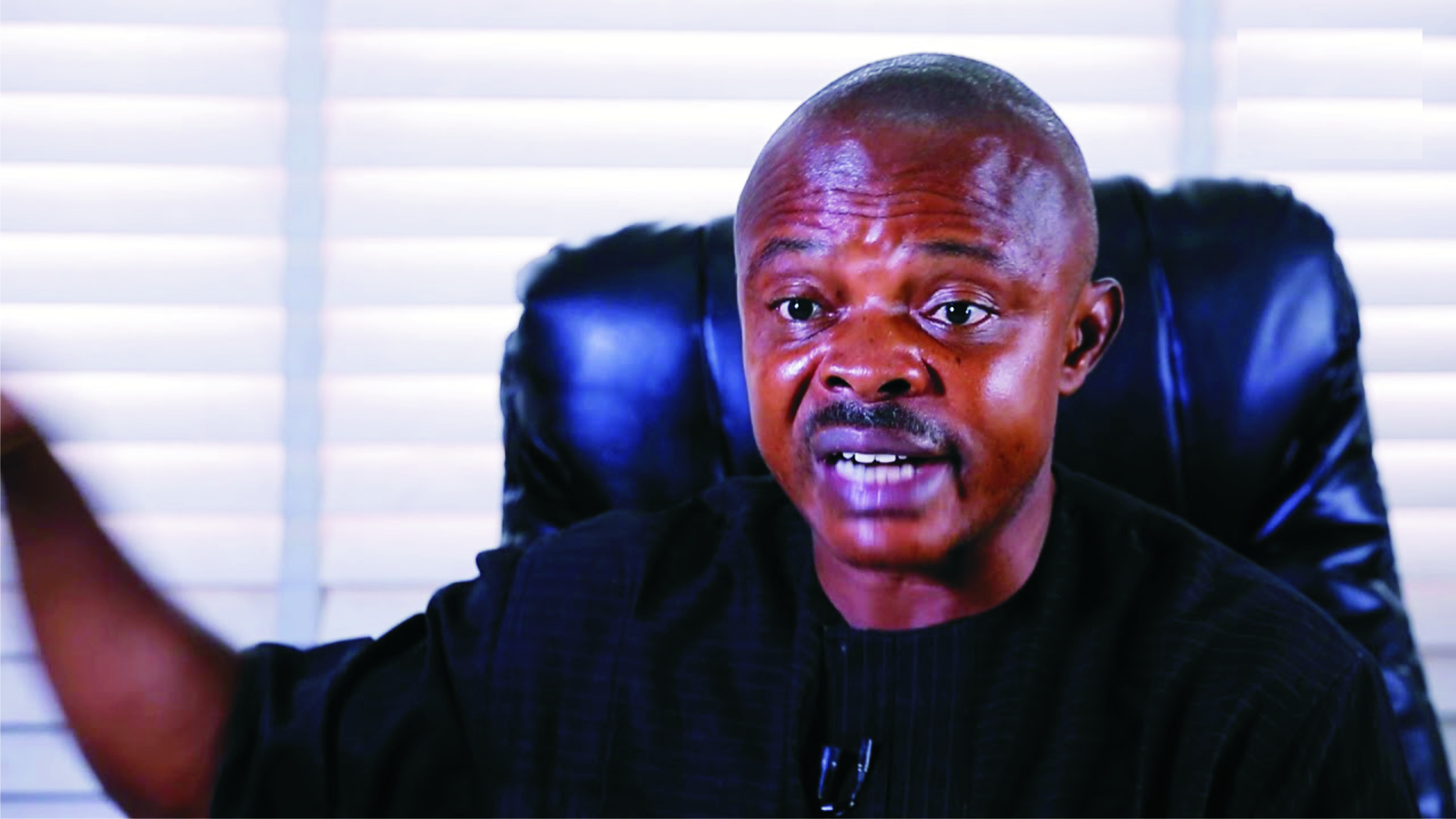
The Organised Labour yesterday, called on the Federal Government to ensure inclusiveness in policy making and guide against erosion of rights, such as free speech and association.
The President, Nigeria Labour Congress (NLC), Mr Joe Ajaero made the call at the 2025 Workers’ Day celebration held at the Eagle’s Square, Abuja.
The Tide source reports Ajaero and the President, Trade Union Congress, Mr Festus Osifo delivered a joint statement on behalf of the organised labour at the event.
Ajaero described May Day as, not only a moment to honour workers’ sacrifices, but also a platform to demand justice and accountability from those in public office.
He frowned at the alleged suppression of protests, and the erosion of rights of workers by some agents
According to him, workers have a duty to resist economic injustice, insecurity, and policies that undermine their dignity.
Speaking on the theme of the day, the NLC President underscored the need for Nigerian workers to reclaim the civic space and resist policies that contribute to worsening economic conditions.
“Our theme this year – “Reclaiming the Civic Space in the midst of Economic Hardship – reflects the urgent need for citizens to protect democracy and push back against repression.
“The civic space, where Nigerians express their concerns and challenge injustices is shrinking.
“If we fail to reclaim this space, the foundation of our democracy risks collapse,” he said
Ajaero, therefore, urged workers to unite and resist division, fear, and despair.
He also urged them to mobilise and organise for change, declaring that the right to demand better conditions is non-negotiable.
“Without workers, there is no society; without labour, there is no development. We must take our place in the fight for economic justice and democratic governance.”
Speaking in the same veins, Osifo said workers are the backbone of the nation—the educators, healthcare providers, builders, farmers, and innovators who sustain its economy -.
He stressed the need for the labour to reclaim the civic space even in the midst of economic hardship.
News
2025 UTME: JAMB Disowns Site Requesting Payment From Candidates

The Joint Admissions and Matriculation Board (JAMB) has disassociated itself from a fraudulent site requesting payments from candidates who missed the ongoing 2025 Unified Tertiary Matriculation Examination (UTME).
The board said that the site, “Copyrightwriter Personal J Rescheduling Flw” and account number 8520641017 at Sterling Bank, associated with it, are scam.
The disclaimer is contained in a statement made available to newsmen in Abuja on Thursday by the Board’s Public Communication Advisor, Dr Fabian Benjamin.
Benjamin said the account is being exploited to defraud unsuspecting candidates who missed their UTME.
“We issue this urgent notice to inform the public about this nefarious scheme targeting candidates who were unable to participate in the UTME.
“Some unscrupulous individuals are deceitfully soliciting payments of N15,700 under the false pretence of offering rescheduling services for the examination.
“Let us be unequivocal: this, it is a blatant scam, and we are confident that the public will not fall prey to such cheap and regressive tactics.
” The individuals behind this scam have no affiliation with JAMB or any legitimate government agency.
“The account details provided in these communications are entirely fictitious and bear no connection to any official processes; they exist solely for the purpose of perpetrating fraud,” he said.
Benjamin called on Sterling bank to take immediate and decisive action against this criminal activity.
According to him, JAMB has reported the matter to the relevant security agencies and actively pursuing those responsible for this deceitful act.
He further said that “JAMB does not reschedule examinations for candidates who miss their scheduled tests due to reasons unrelated to the Board’s actions”.
He, however, said that the Board is conducting a thorough investigation for candidates whose biometrics failed during verification and were thus unable to sit for the examination.
He said those without discrepancies would be invited to retake the examination at no cost , stressing that “no cost is required”
“It is imperative to understand that JAMB does not charge any fees for examinations after a candidate has completed their registration.
“We strongly urge all candidates to remain vigilant and not to succumb to these fraudulent schemes.
“Protect yourselves and report any suspicious activity immediately,” he explained.
News
NDDC Seeks UN’s Support To Accelerate Niger Delta Development
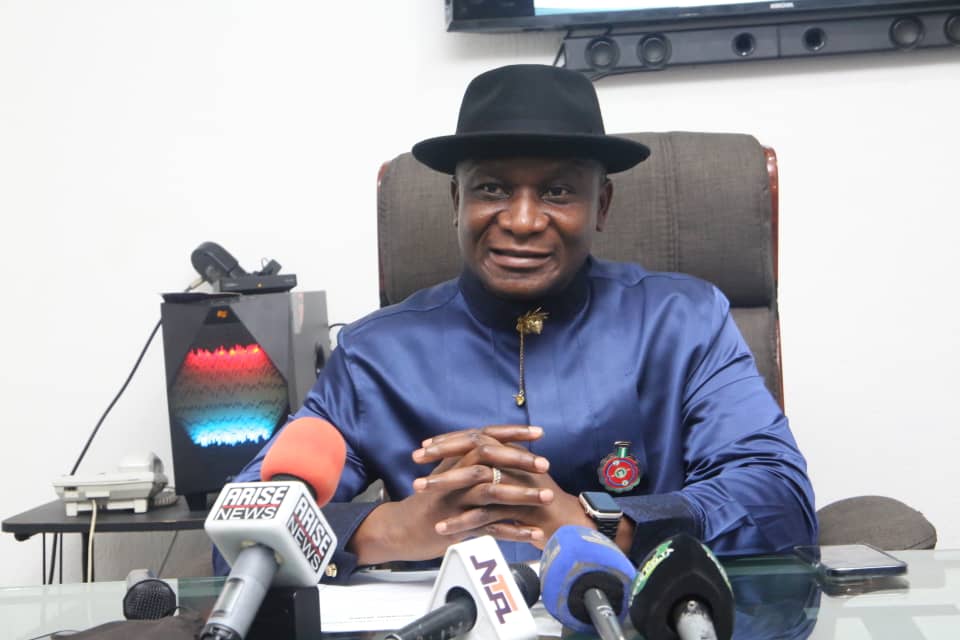
The Niger Delta Development Commission (NDDC) has expressed its willingness to partner with the United Nations (UN) to accelerate the development of the Niger Delta region.
Dr Samual Ogbuku, Managing Director of the NDDC, made the appeal in a statement issued by the commission’s Director of Corporate Affairs, Mrs Seledi Thompson-Wakama, in Port Harcourt on yesterday.
According to the statement, Ogbuku sought the UN’s support during his visit to the UN Resident and Humanitarian Coordinator (UNRHC), Mr Mohammed Fall, at the UN regional office in Abuja.
He called on the global body to provide the NDDC with technical assistance and expert services to support the region’s development.
“We are eager to collaborate with the UN, recognising that the state governments in the region and the NDDC alone cannot achieve the level of regional development required,” he said.
Ogbuku identified key areas where support would be needed, including the provision of portable and affordable drinking water powered by high-tech solar energy sources.
He also highlighted the importance of reforesting the mangrove swamps, which have been severely damaged by decades of environmental degradation caused by oil exploration in the Niger Delta.
“Although the NDDC has made progress in providing solar-powered streetlights across the region, we still require UN support in delivering solar energy solutions for residential buildings.
“We also wish to explore the possibility of installing solar mini-grids in homes across communities, which would boost local commerce and trade,” he added.
The NDDC managing director further appealed for increased UN involvement in areas such as healthcare, education, youth training, gender development, and food security.
Ogunku stated that such interventions would significantly enhance the standard of living in the region.
In response, Fall affirmed the UN’s readiness to collaborate with the NDDC to fast track development in the Niger Delta.
He assured that the UN would support initiatives in food security, job creation, education, and renewable energy, among other areas.
“We aim to approach development in the Niger Delta holistically, rather than focusing solely on environmental pollution.
“This is merely an entry point; however, the UN’s development vision aligns with the Sustainable Development Goals (SDGs), which are designed to positively impact various aspects of people’s lives,” Fall stated.
He assured the NDDC of continued and fruitful engagements to drive the region’s development.
-
Politics5 days ago
Gunmen Disrupt Political Rally In Bayelsa ….As Turnah, Others Emerge New Associates’Leaders
-
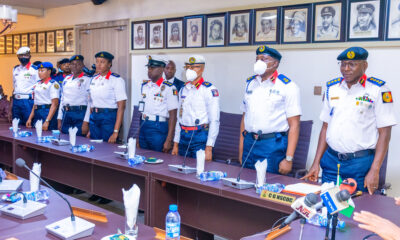
 Rivers5 days ago
Rivers5 days agoSecurity Agencies Engage Rivers Communities On Pipeline Protection
-
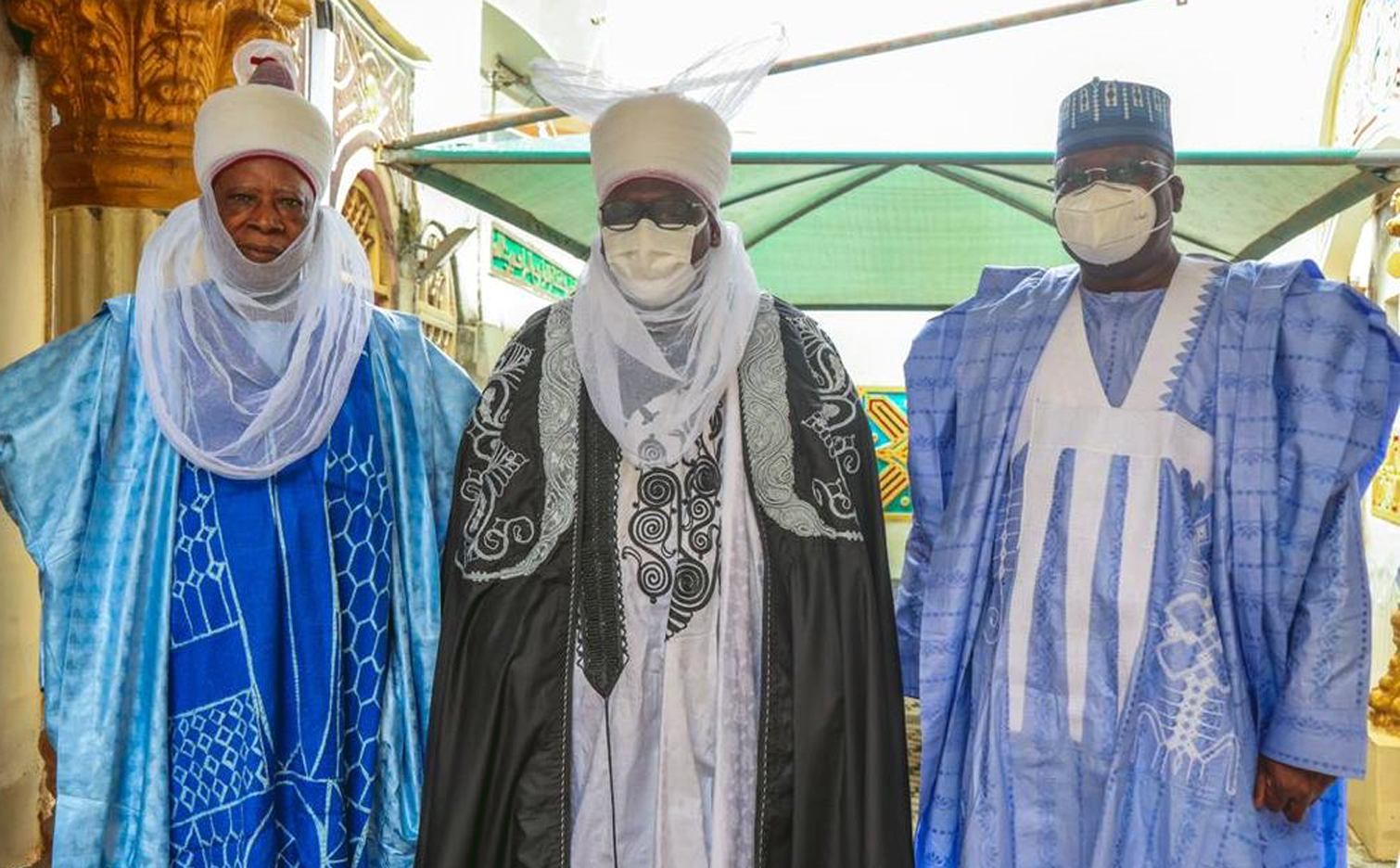
 Nation5 days ago
Nation5 days agoNasarawa Varsity Student Commits Suicide
-
Business5 days ago
Smuggled Rice Tops Seized Items List In 2025
-
Rivers4 days ago
Obi Donates 80 Desks To Schools In Etche
-

 Opinion5 days ago
Opinion5 days agoEnding Malaria Menace For Improved Health
-
Sports5 days ago
Arsenal Eye Special Performance In Paris
-

 News5 days ago
News5 days agoFG Licenses 11 New Private Universities

